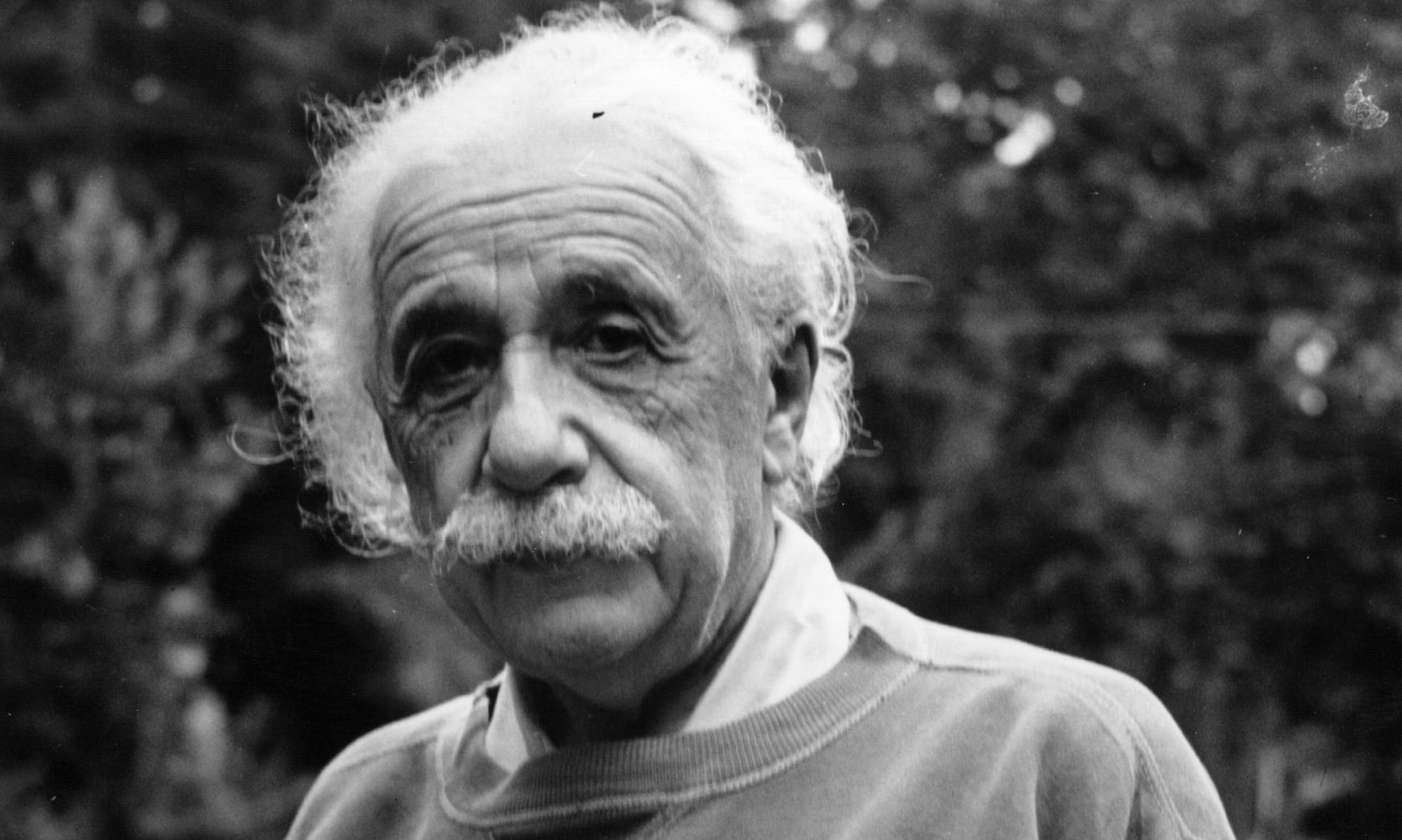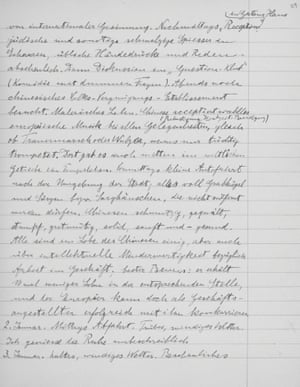In his private journals, Einstein describes the “industrious, filthy, obtuse people” he observes while traveling in China
By Alison Flood
Albert Einstein in 1921.
The publication of Albert Einstein’s private diaries detailing his tour of Asia in the 1920s reveals the theoretical physicist and humanitarian icon’s harsh opinion about the Chinese he met on his travels.
Written between October 1922 and March 1923, the diaries see the scientist musing on his travels, science, philosophy and art.
Written between October 1922 and March 1923, the diaries see the scientist musing on his travels, science, philosophy and art.
In China, Einstein famously describes the “industrious, filthy, obtuse people” he observes.
He notes how the “Chinese don’t sit on benches while eating but squat like Europeans do when they relieve themselves out in the leafy woods. All this occurs quietly and demurely. Even the children are spiritless and look obtuse.”
After earlier writing of the “abundance of offspring” and the “fecundity” of the Chinese, he goes on to say: “It would be a pity if these Chinese supplant all other races. For the likes of us the mere thought is unspeakably dreary.”
Ze’ev Rosenkranz, senior editor and assistant director of the Einstein Papers Project at the California Institute of Technology, said: “I think a lot of comments strike us as a little unpleasant – what he says about the Chinese in particular.
“I think it’s quite a shock to read those and contrast them with his more public statements. They’re more off guard, he didn’t intend them for publication.”
Ze’ev Rosenkranz, senior editor and assistant director of the Einstein Papers Project at the California Institute of Technology, said: “I think a lot of comments strike us as a little unpleasant – what he says about the Chinese in particular.
“I think it’s quite a shock to read those and contrast them with his more public statements. They’re more off guard, he didn’t intend them for publication.”

A page from Einstein’s travel journals, written while in China in 1922. Photograph: With permission of the Albert Einstein Archives, the Hebrew University of Jerusalem and the Morgan Library & Museum
Rosenkranz has edited and translated The Travel Diaries of Albert Einstein, which have just been published for the first time as a standalone volume by Princeton University Press, including facsimiles of the diary pages.
The diaries have only previously been published in German as part of the 15-volume Collected Papers of Albert Einstein, with small supplementary translations into English.
A spokesperson for Princeton University Press said: “This is the first time Einstein’s travel diary will be made available to anyone who isn’t a serious Einstein scholar.”
Further passages in the diaries, which are thought to have been written for Einstein’s stepdaughters in Berlin while he and his wife were travelling in Asia, Spain and Palestine, and as an aide memoire, see him writing of the Chinese that “even those reduced to working like horses never give the impression of conscious suffering. A peculiar herd-like nation [ … ] often more like automatons than people.”
Further passages in the diaries, which are thought to have been written for Einstein’s stepdaughters in Berlin while he and his wife were travelling in Asia, Spain and Palestine, and as an aide memoire, see him writing of the Chinese that “even those reduced to working like horses never give the impression of conscious suffering. A peculiar herd-like nation [ … ] often more like automatons than people.”
He later adds the observation: “I noticed how little difference there is between men and women; I don’t understand what kind of fatal attraction Chinese women possess which enthralls the corresponding men to such an extent that they are incapable of defending themselves against the formidable blessing of offspring”.
Einstein’s perceptions of the Japanese he meets are, in contrast, very positive: “Japanese unostentatious, decent, altogether very appealing,” he writes.
Einstein’s perceptions of the Japanese he meets are, in contrast, very positive: “Japanese unostentatious, decent, altogether very appealing,” he writes.
“Pure souls as nowhere else among people. One has to love and admire this country.”
But Rosenkranz points out that “Einstein’s diary entries on the biological origin of the intellectual inferiority of Chinese are definitely not understated and can be viewed as racist – in these instances, other peoples are portrayed as being biologically inferior, a clear hallmark of racism. The comment that the Chinese may ‘supplant all other races’ is also most revealing in this regard.”
“Here, Einstein perceives the Chinese ‘race’ as a threat. Yet the remark that must strike the modern reader as most offensive is his feigning not to understand how Chinese men can find their women sufficiently attractive to have offspring with them. In light of these instances, we must conclude that Einstein did make quite a few racist comments in the diary.”
Aucun commentaire:
Enregistrer un commentaire